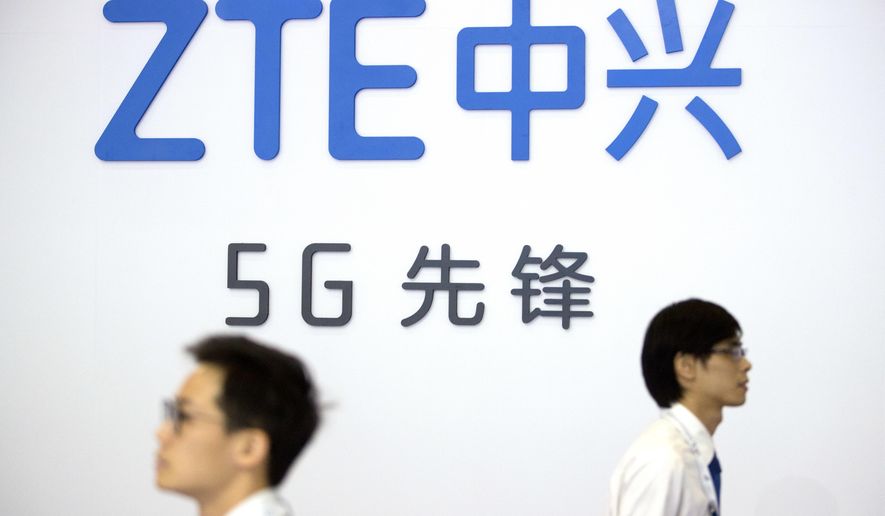Chinese telecommunications company ZTE has been involved in international bribery incidents around the world but so far escaped prosecution by the Justice Department for corrupt practices, according to a report commissioned by hedge fund manager J. Kyle Bass.
The investigation, completed in September 2019 and submitted to Justice Department investigators, was based on court documents, interviews with prosecutors, and news reports showing ZTE linked to corrupt practices in more than a dozen countries. Mr. Bass’ investigators argue that there is strong evidence of violations by the Chinese telecom giant of the 1977 Foreign Corrupt Practices Act (FCPA).
“ZTE has engaged in systemic, centrally managed corruption at a scale rarely seen in international commerce,” states the report produced by a team of investigators directed by Mr. Bass, an outspoken critic of the ruling Chinese Communist Party.
The law initially was limited to corruption by Americans but was amended in 1998 to cover foreign companies that trade on U.S. stock markets, like ZTE, which is based in Shenzhen, China, and has a U.S. branch in Texas. A copy of the 26-page report was obtained by The Washington Times.
In June, both ZTE and Huawei Technologies, China’s other major telecom companies, were declared national security threats based on fears their equipment could be used for electronic spying for the Chinese intelligence services.
ZTE spokesmen did not return emails or calls seeking comment on the report.
However, in response to an NBC News report in March that said the U.S. prosecutors are investigating ZTE for bribery, the company denied operating illegally.
“ZTE is fully committed to meeting its legal and compliance obligations,” the company said. “The top priority of the company’s leadership team is making ZTE a trusted and reliable business partner in the global marketplace, and the company is proud of the enormous progress it has made.”
A Justice Department spokesman declined to comment.
The Bass report provides a country-by-country listing of criminal cases and potential crimes involving ZTE officials in 18 countries, most of them in Africa, along with several in Asia and one in Venezuela.
“ZTE’s pattern of using bribes and kickbacks to procure government contracts has directly harmed American interests, damaged the rule of law and democracy in emerging markets, and facilitated the theft (through massively inflated contract price) of huge amounts of resources from some of the poorest people on earth,” the report said.
For example, a ZTE executive was convicted in Algeria paying a $10 million bribe to a senior official in the Algerian state telecommunications agency eight years ago.
After a ban on ZTE operating in Algeria ended in 2014, the company purchased a Turkish telecom called Netras that began operating in the north African state. Netras was then awarded a $50 million contract that initially had been given to IBM but later withdrawn, the report said.
In June 2018, ZTE, formally known as Zhongxing Telecommunications Equipment Corp., agreed to pay $1.4 billion in penalties for violating an earlier agreement regarding its sale of U.S. telecommunications equipment to Iran in violation of American sanctions. As part of the settlement, ZTE was removed from a Commerce Department blacklist of companies restricted from doing business in the United States.
The penalties were imposed after ZTE had promised to penalize corrupt company officials involved in the Iran dealings but instead gave them bonuses. The agreement also required ZTE to place $400 million in escrow and that money can be forfeited if the company failed to cooperate in the corruption probe, the report said.
The Justice Department’s China Initiative, a program set up by the Trump administration to counter Chinese illegal technology theft and spying, has as one of its tenets the identification of FCPA cases involving Chinese companies in competition with U.S. business.
Mr. Bass said the initiative has prosecuted many cases, but not one FCPA case has been made public against a Chinese company.
He called ZTE is a “poster child” for sales of Chinese made network equipment at low prices that “allow the Chinese government to eavesdrop on all communications running on their equipment.”
Mr. Bass said President Trump “gave ZTE a pass” by exempting the company from economic sanctions after the admission of equipment sales to Iran.
“Trump did this in exchange for his coveted China trade deal, which was a major strategic blunder,” Mr. Bass said. “Now is the time for the U.S. attorney to bring an easy case against ZTE and, as a result, to throw them out of the United States once and for all.”
• Bill Gertz can be reached at bgertz@washingtontimes.com.




Please read our comment policy before commenting.